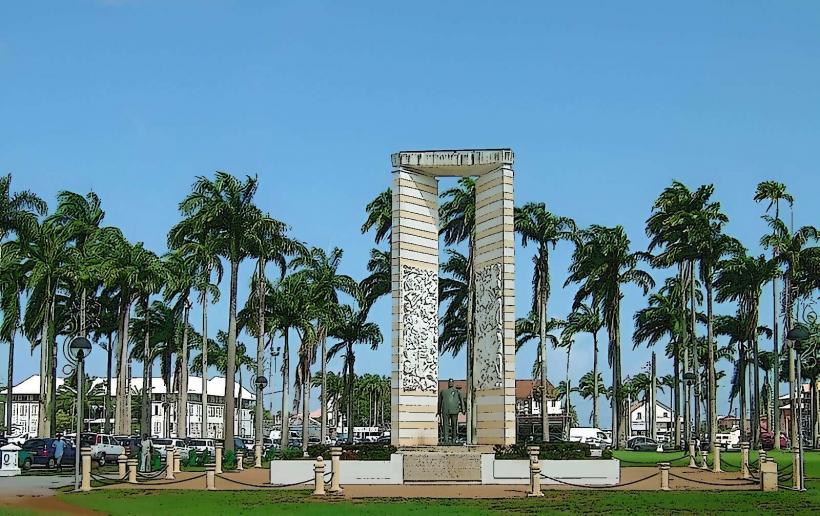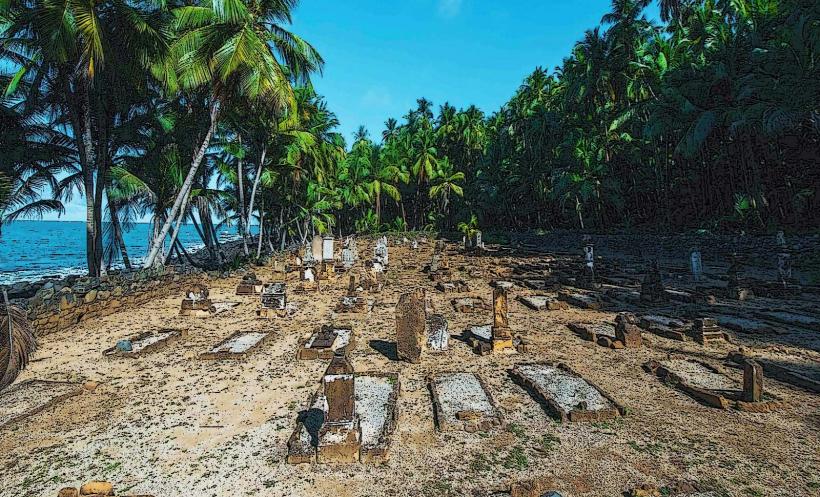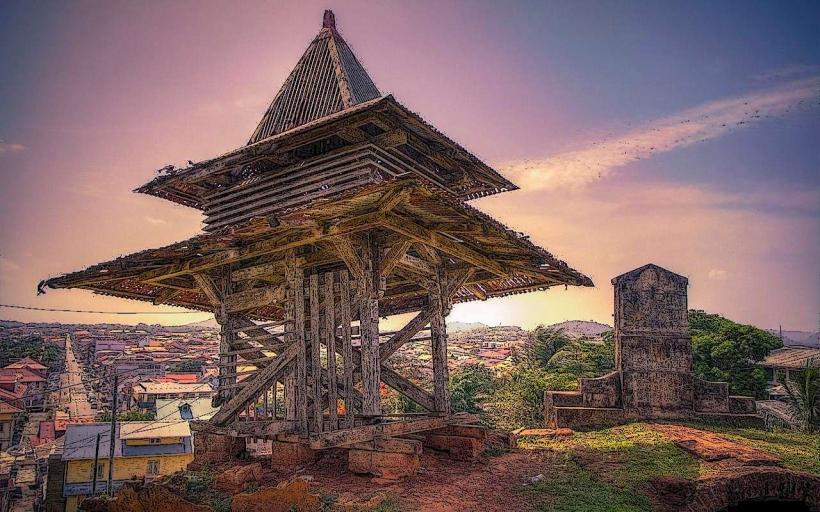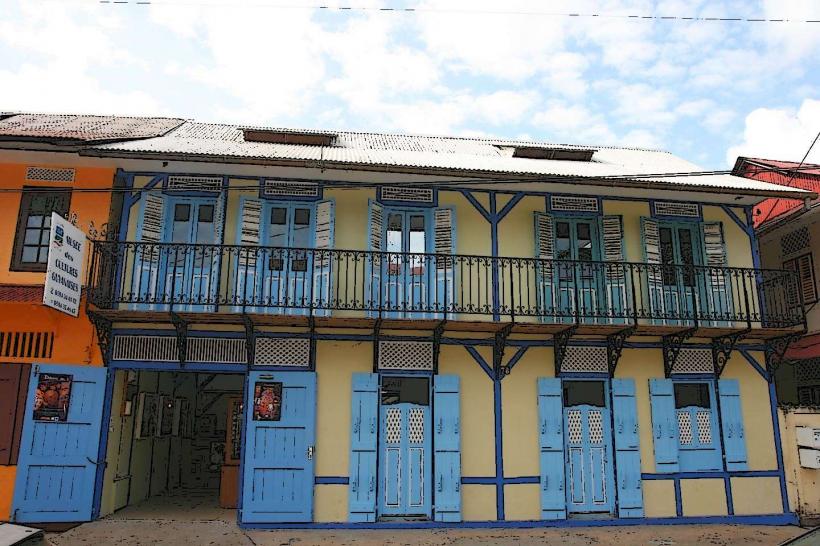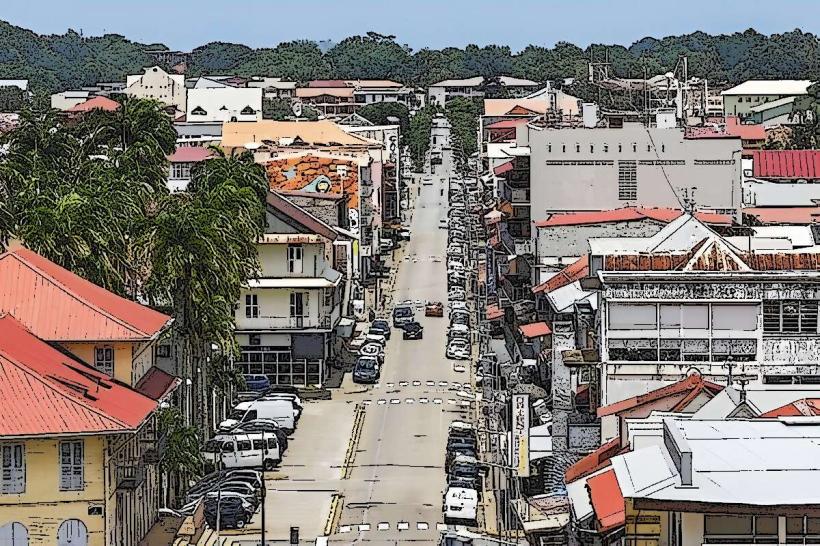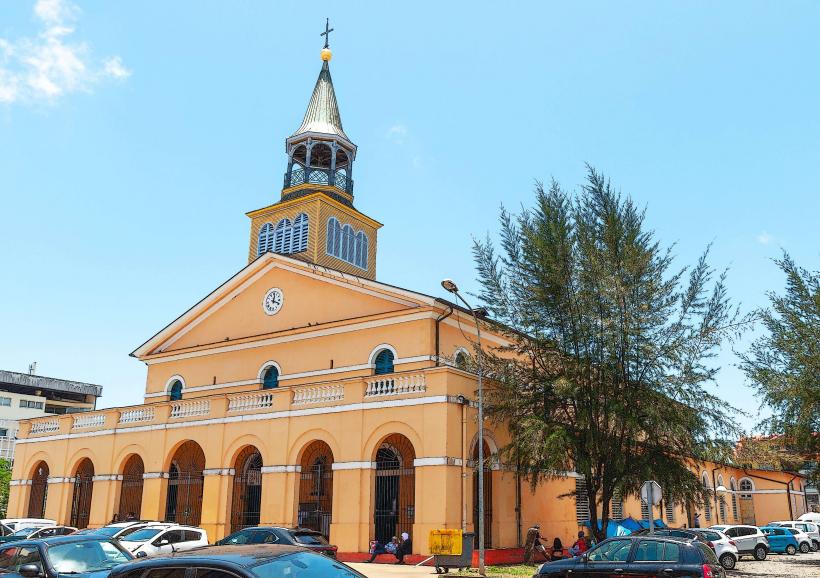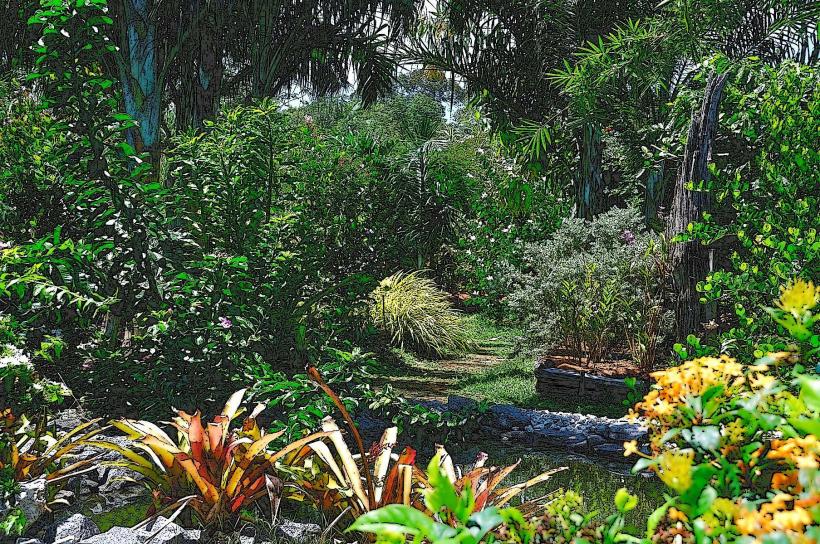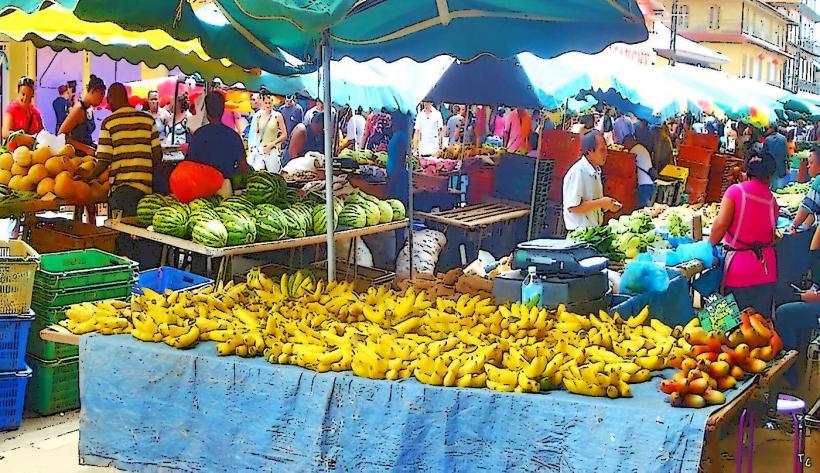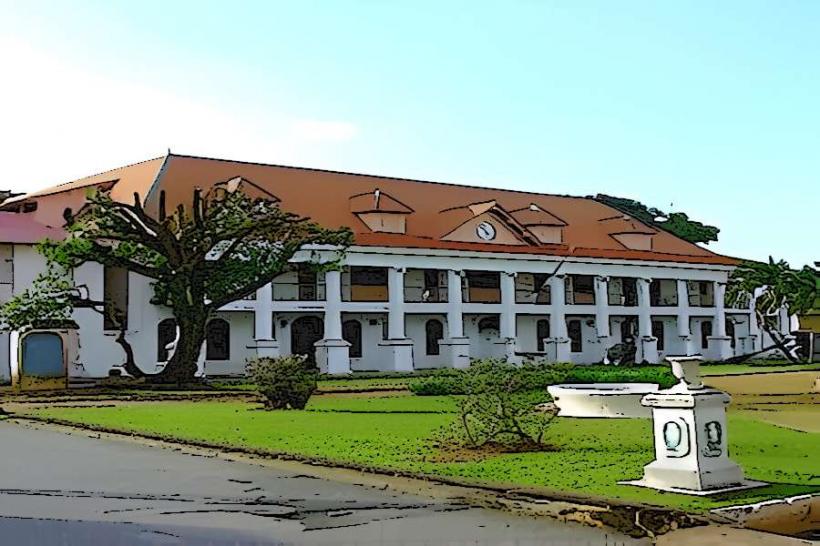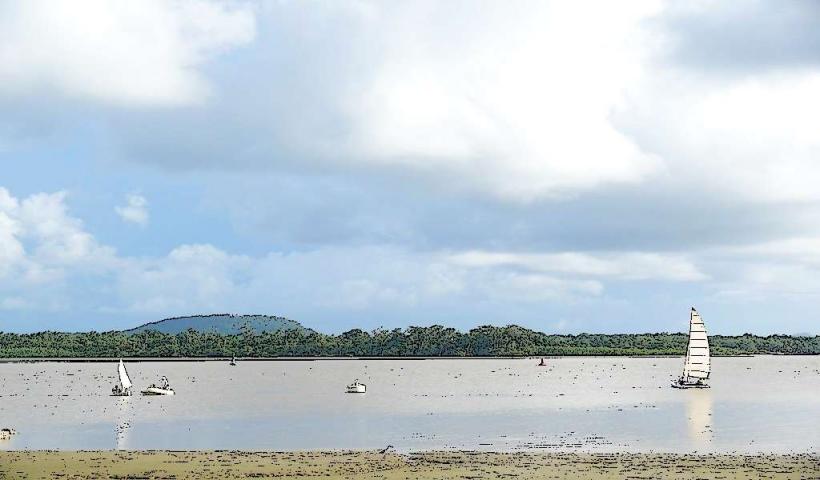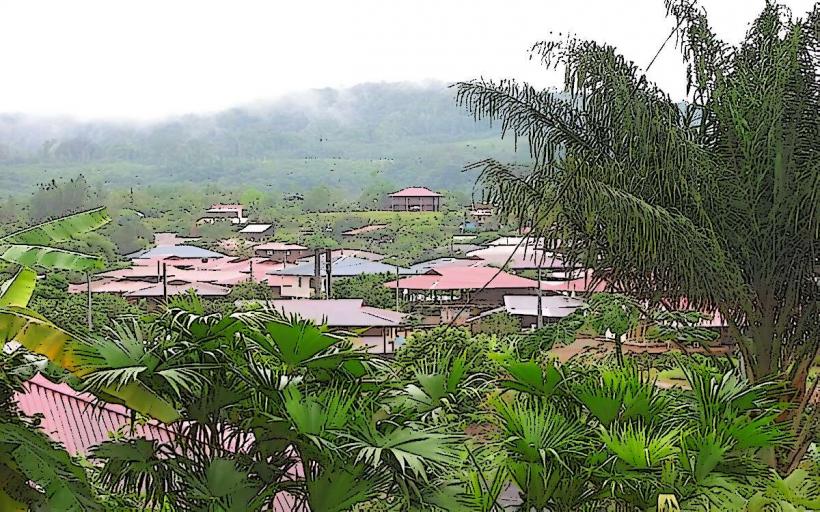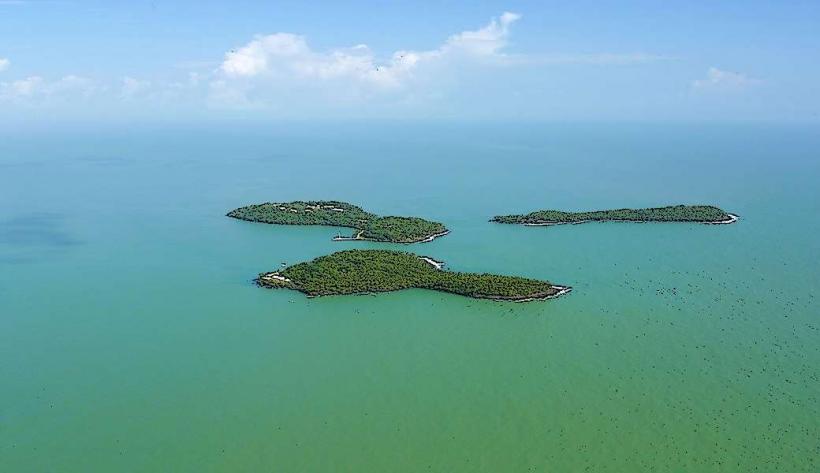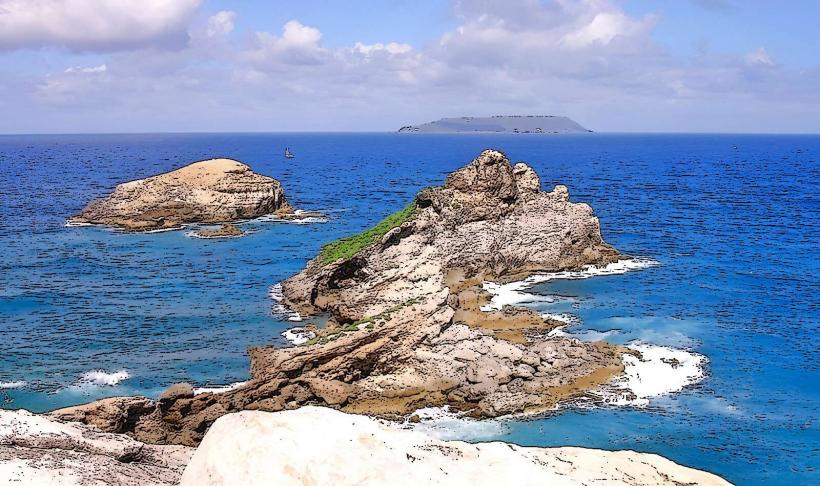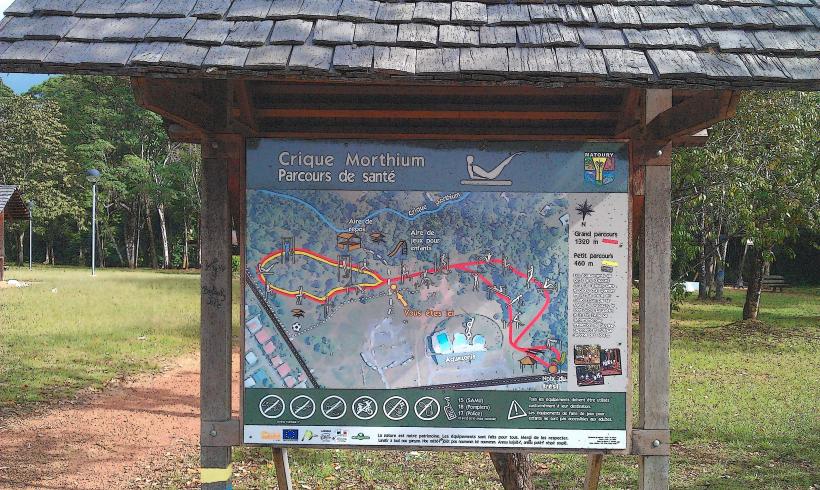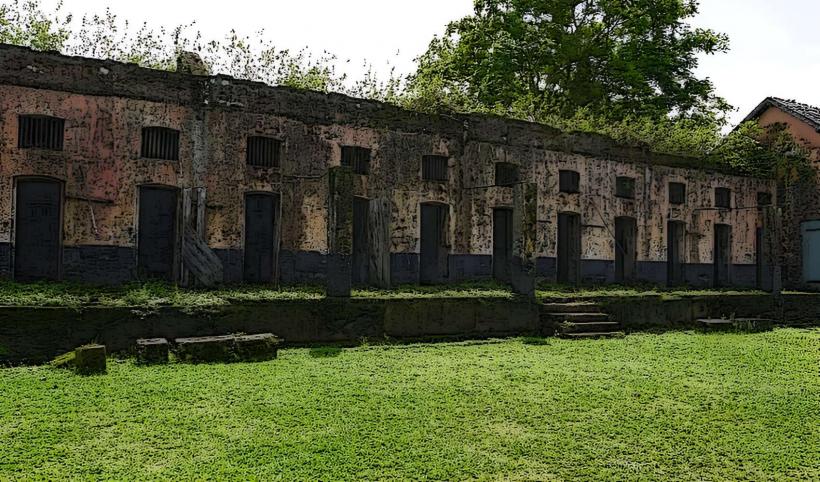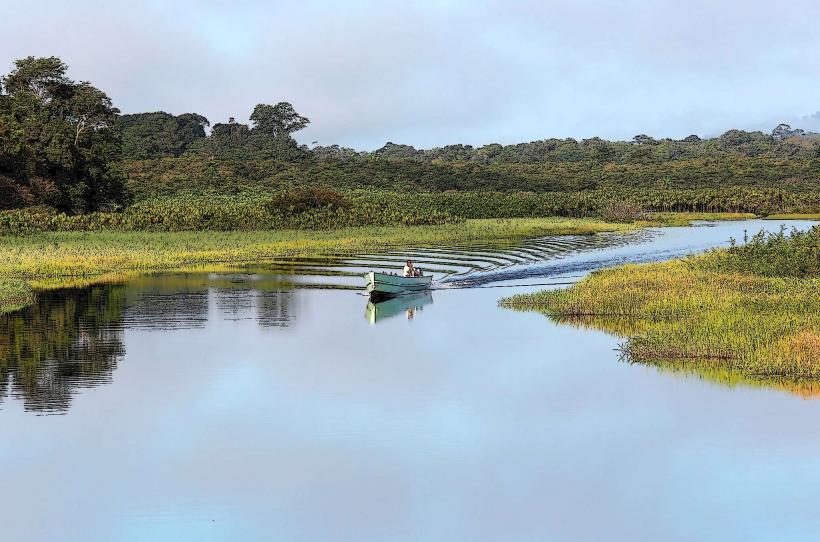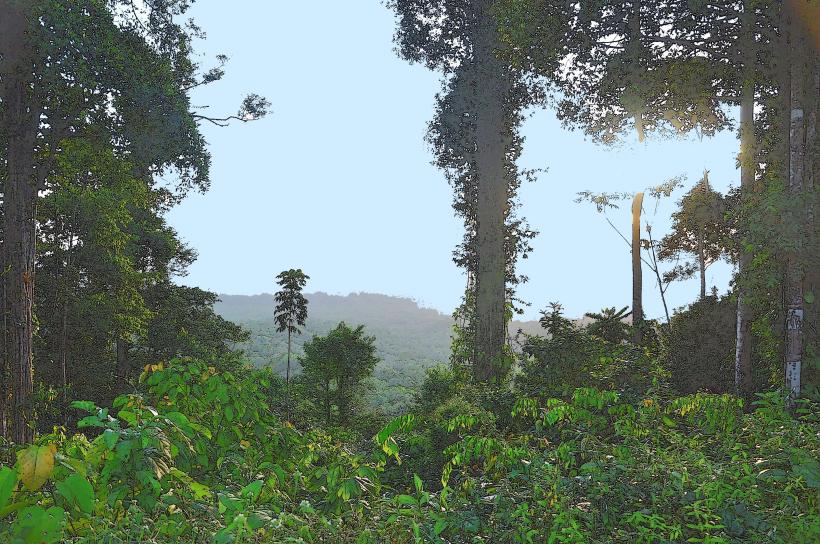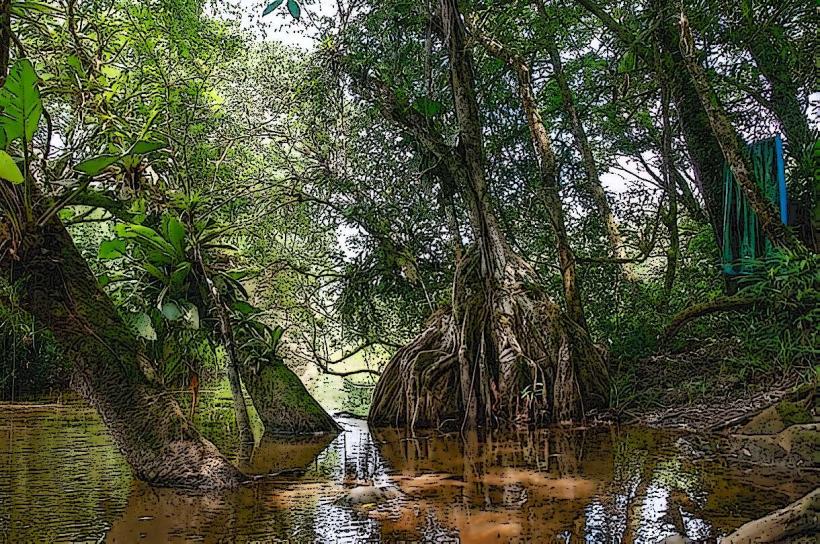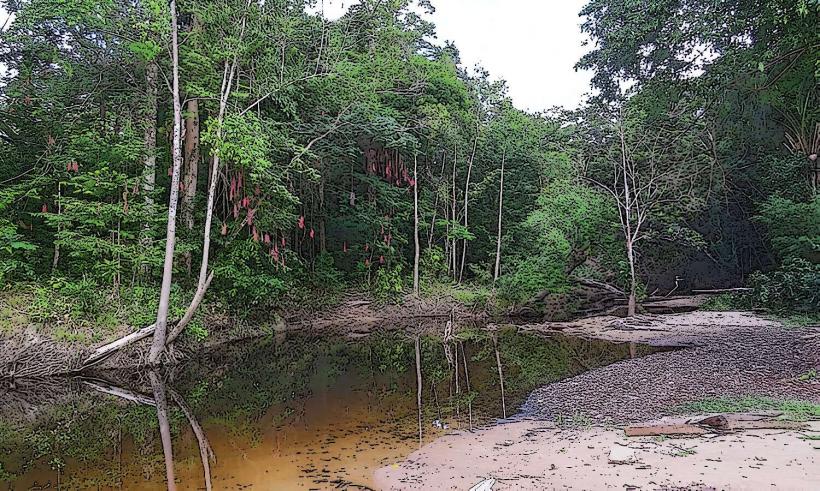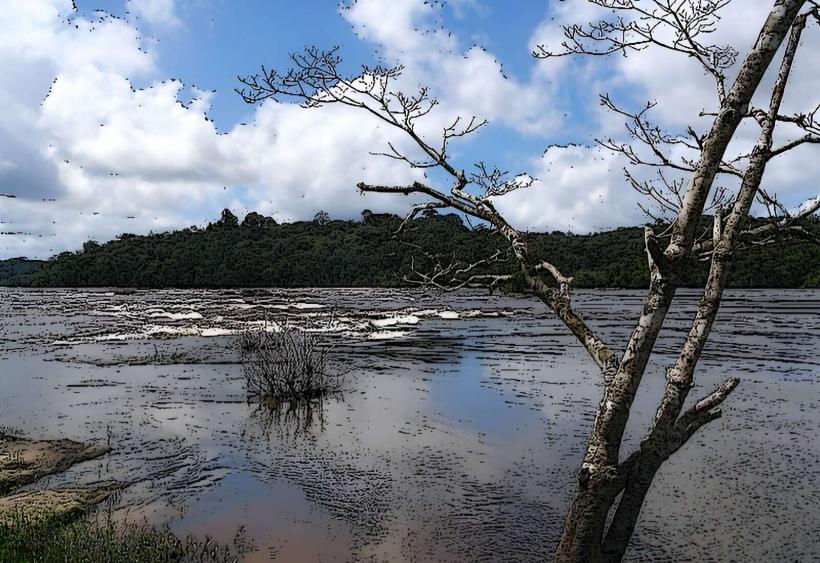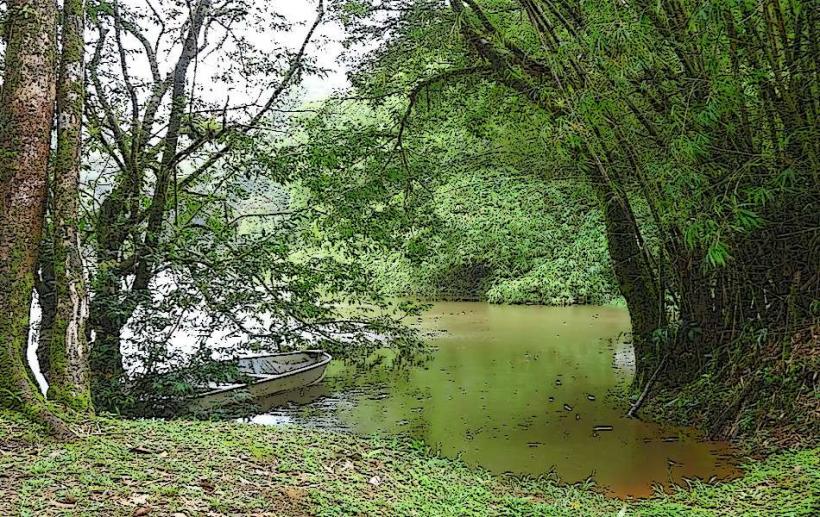Information
Landmark: Domaine de MontaboCity: Cayenne
Country: French Guiana
Continent: South America
Domaine de Montabo, Cayenne, French Guiana, South America
The Domaine de Montabo is a former presidential residence and botanical garden situated on the Montabo peninsula in Cayenne, French Guiana.
It functions as a significant green space and a site of historical governmental presence within the city's urban fabric.
Visual Characteristics
The estate features a main residence building, typically characterized by colonial-era architecture, often painted in light colors with prominent verandas and a tiled roof. The surrounding botanical garden spans several hectares, showcasing dense tropical vegetation, including mature trees, diverse plant species, and landscaped pathways. Water features or ponds may be present, contributing to the garden's ecological diversity. The terrain includes gentle slopes leading towards the coast.
Location & Access Logistics
The Domaine de Montabo is located approximately 5 kilometers northeast of Cayenne city center. Access is primarily via the Route de Montabo (D16), which extends from the city. Limited public parking is available near the entrance. Public transportation options are infrequent; visitors typically rely on private vehicles or taxis. The site is situated on a peninsula, offering views of the Atlantic coast.
Historical & Ecological Origin
The estate was established as the official residence for the Prefect of French Guiana, later serving as a presidential residence. Its construction dates back to the mid-20th century. The botanical garden component was developed to showcase the region's rich biodiversity, featuring both indigenous and introduced tropical plant species. It serves as an ecological classification site for various flora adapted to the Guianan climate.
Key Highlights & Activities
Visitors can engage in walking along designated trails within the botanical garden, observing diverse plant collections. Specific areas are dedicated to different plant families or ecological zones. Birdwatching is possible due to the dense vegetation attracting local avian species. The former residence building itself is generally not open for public interior access but can be viewed from the exterior.
Infrastructure & Amenities
Basic restroom facilities are available near the main entrance or within the garden area. Shade is abundant due to the dense tree canopy throughout the botanical garden. Cell phone signal (4G/5G) is generally reliable across the site. There are no permanent food vendors directly within the Domaine de Montabo; visitors should plan accordingly or access services in nearby urban areas.
Best Time to Visit
The optimal time to visit is during the dry season, from August to November, when rainfall is minimal and temperatures are more moderate. Mornings, between 08:00 and 11:00, offer cooler temperatures and softer light, ideal for photography and comfortable walking. There are no specific tide requirements for visiting the garden.
Facts & Legends
The Domaine de Montabo is known for its collection of rare Amazonian plant species, some of which are endemic to the Guiana Shield. A local anecdote suggests that certain exotic fruit trees within the garden were personally planted by visiting dignitaries during their stays, contributing to its unique botanical diversity.
Nearby Landmarks
- Plage de Montabo: 0.5km North
- Fort Cépérou: 4.5km Southwest
- Place des Palmistes: 4.8km Southwest
- Musée des Cultures Guyanaises: 4.2km Southwest

